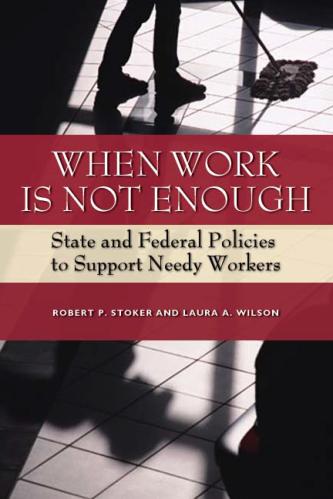Tech-fueled philanthropy is responsible for one of the most promising new mental health innovations as the Food and Drug Administration is on the verge of allowing doctors to prescribe therapy with the psychedelic drugs in ecstasy and “magic mushrooms” in order to treat severe depression. Though initial studies with psychedelics have been successful enough for the FDA to grant a rare “breakthrough” waiver to accelerate their adoption through an otherwise lengthy regulatory process, government agencies and members of Congress have not supported further research. Nearly all research funding has come from wealthy philanthropists, such as venture capitalist George Sarlow, who credits psychedelics for helping him overcome trauma related to his experience escaping Nazi-occupied Europe as a child.
Indeed, many of today’s most widely praised welfare innovations began as contentious philanthropic donations, such as a basic income pilot of unconditional $500 monthly checks being tested in Stockton, California, which has since inspired copycats around the country to propose it as a response to pandemic-fueled unemployment.
I conduct research for the San Francisco-based policy nonprofit, Tech4America, and I often sit on roundtables with mayors and governors eager to learn how they can apply big ideas from Silicon Valley to unresolved challenges facing their constituents. Over the last few years, my big piece of advice has narrowed to a single idea: support existing nonprofits and startups in their area, which are often already piloting the best ideas. To find the most promising projects to match, look at what philanthropies are supporting, just as governments match university funding in the physical or agricultural sciences.
This advice to fund ongoing work in the non-profit sector almost invariably gets met with a reluctant rejection. Policymakers will let out a sigh and bemoan how it’s politically taboo to officially rely on outside organizations. Betting big on nonprofits and startups is tantamount to admitting the government doesn’t have all the answers and that welfare problems should be treated like technical challenges (this was true for lawmakers from both parties).
The very idea of treating social problems like technical challenges has become a lightning rod for critics. Over the last decade, the philanthropy sector has gone from hero to villain for its association with wealthy innovators. Notably, author Anand Giridharadas criticised me and many of my colleagues in his widely read takedown, “Winner Take All”, which chides technologists for rarely funding any projects that actually improve the world, all while avoiding taxes and regulation.
Giridharadas, and many critics like him, imply that instead of trying to act outside of government, technologists should apply their creativity to making government better. Around the time he wrote his book, I agreed with this sentiment. I secured grants to test how to make government more innovative on welfare issues.
For over a year, I have offered mayors or governors an opportunity to use my grant to give cash and free vocational training to their constituents in ways not currently offered in their area. The only caveat was that the pilot had to conduct its findings in public and they had to be willing to pivot based on what was working (and failing). And, instead of spending years trying to convince their legislative counterparts to use the whole budget on some ideas, I argued that they could immediately test out their legislative ideas with their constituents.
In the end, despite very good connections with a list of mayors, we couldn’t secure a partnership. The closest we got was the mayor of a medium-sized city who jumped at the offer of grant money, but told us that we had to run the process through an entirely separate, private nonprofit they set up, because there was no way any agency they controlled could manage an innovative process!
Why would policymakers who manage agencies want to innovate outside of government? It turns out that public programs are not designed for risky change. Vocational education is a good illustrating example. As I wrote about for the Brookings Institution, public workforce training programs have a poor track record. They have not adapted to modern job requirements and often exclude marginalized populations that can’t take out time for full-time education and job search.
Policymakers are eager for solutions. I was too, and spurred by frustration, I ended up partnering directly with local nonprofits in the Bay Area and New York to see how different forms of cash-transfers or vocational support could help constituents increase their long-term income. I gathered experts and brainstormed ideas. Ultimately, I would discover that the ideas we tested were already being better executed by organizations funded by philanthropies.
For instance, I have seen a few promising philanthropy-supported organizations that could potentially address modern challenges facing adult vocational education. Pursuit is an education program that, instead of tuition, takes a chunk of graduates’ future earnings and provides extended career support as students navigate the job market (“income sharing”). Climb Hire trains low-income workers to be Salesforce software administrators and relies on students to pay back part of the education costs if they land a job.
So, what happens after a welfare discovery is made? How can the government ensure there is equitable access? Just like funding scientific university research, moderate amounts of public support can ultimately create self-sustaining or affordably subsidized innovations.
For instance, for psychedelic therapy, it has taken tens-of-millions of dollars in seed philanthropy to conduct FDA-approved trials, and will take millions more to train therapists in these novel techniques. But, once these new therapies receive FDA approval, there are thousands of existing clinics and counselors that can serve the public. FDA approval will permit private and public health insurance to provide access to psychedelic therapy prescribed by a licensed physician.
The same is true in vocational education. The Obama administration fought to open financing options to non-traditional technical training, such as coding bootcamps. A handful of cities are now exploring extending public access for income sharing schools.
That is, there is already an established pipeline for many of the most promising welfare innovations: it begins with philanthropic support for scrappy nonprofits and startups, then, with enough success, their services become eligible for citizens to freely choose them with public subsidy.
Or, if the government were to simply give out cash transfers instead of subsidized payments and loans, services end up much more affordable thanks to advances in technology (both online education and therapy have dramatically dropped in price).
Stanford’s Rob Reich has argued that tech philanthropy is undermining democracy by allowing the wealthy to dictate the direction of welfare research. I think this is partly because the government is far more exploratory with basic scientific innovation than welfare.
We should empower local policymakers to broadly support an extraordinary amount of nonprofits and startups that they believe hold promise for their constituents.
I understand the need to be skeptical of philanthropy. We should be weary when philanthropists congratulate themselves at lavish parties without cause or use their money to simply subvert democracy and regulation.
But, many of the most pressing modern welfare dilemmas have no easy answer. It will take (a lot) of different ideas to eventually discover what works at scale. Government is not designed for the kind of scattershot approach necessary to build new things. We should recognize that philanthropies play an essential role in welfare innovation and support them in the hopes of solving grand puzzles.









Commentary
Why philanthropies play an important role in welfare innovation
September 3, 2020